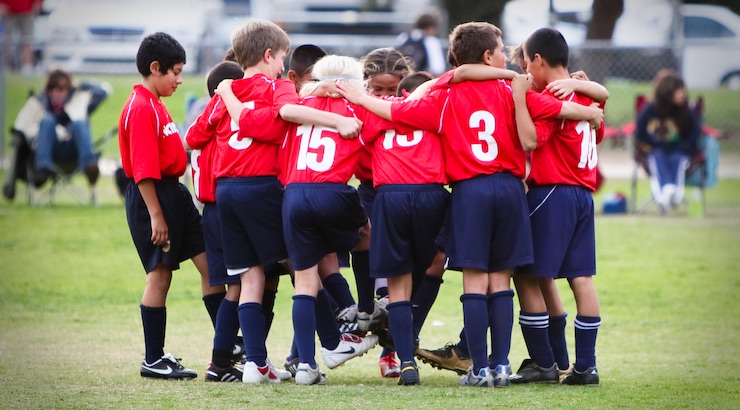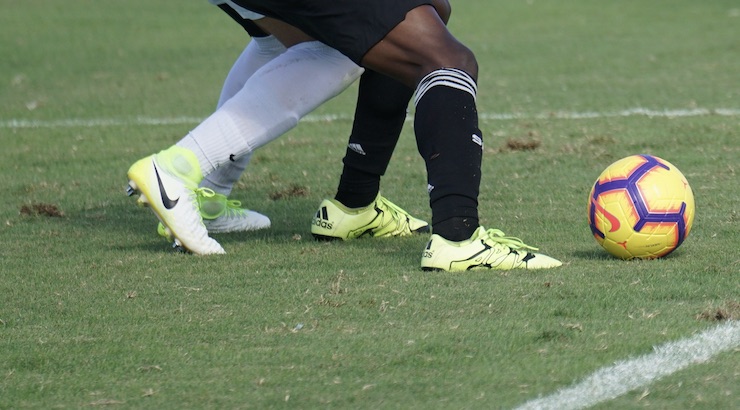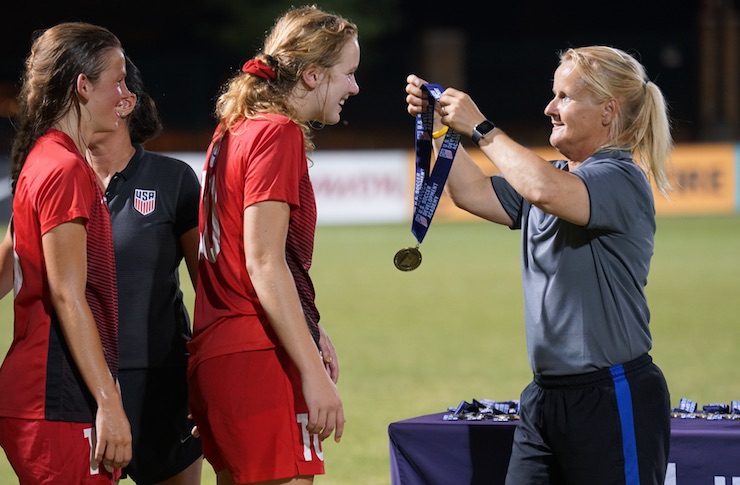Why Has Winning Become Bad? What Are We Really Teaching Our Players?
The playing grounds of the soccer fields are the vehicles in which our future generations are being nurtured. Are we doing right by our players?
The discussion around winning in youth soccer seems to have become the elephant in the room. The following article explores the implications of not creating a winning environment and gives some insights on how to.
“Winning isn’t everything, but striving to win is” Vince Lombardi
First we must ask the question, do we have a responsibility to help a player develop a competitive mentality?

In my opinion, the answer is a resounding yes! The ability to compete and will to win is not a natural gift that someone is given; it is developed within the environment that someone is placed within.
As youth coaches we focus on developing the technical, tactical & physical tools, but how much do we focus on the growth of a player’s competitive mentality.
- “I am not concerned with the result, it’s the performance”
- “Winning does not matter, it’s how you play”
- “Winning is not important at your age”
It is becoming quite common to hear coaches and parents say these words, but what do they really mean?
We need to remember that our words are nutrition for the mind.
What we consistently tell a young player, a young player will believe and begin to unconsciously act out! With this in mind, the environment we create through the words we use, as well as the actions we take, is of the utmost importance.
What are good practices to help support the development of a winning mentality within a young player?
Firstly to create a place where winning can be spoken of, not feared, the players should be able to embrace the word win, love it, want it and strive for it. The role of the coach is to educate and inspire the young player on the fun and love for the journey of striving to win!
Part of our culture is being competitive.
I create a training environment that consistently embraces the energy around winning. I want players to strive to compete and win, we celebrate winning but more importantly the act of striving to win.
This is a Tested Concept:

For those of you that have not yet read the book Grit by Angela Duckworth, I highly recommend it as a must read! Within the book, Duckworth spends time with Pete Carroll, his staff and players at the Seattle Seahawks. Duckworth explains the culture of the Seahawks. My perception from Duckworth’s explanation of the Seahawks culture was the importance Carroll and his staff placed on creating a competitive mentality. He wants his players to compete ‘all out’ in every play of every session, he wants them to start every play strong and finish every play strong!
What was key for me was the importance of players understanding that by competing in such a way they were making each other grow as players and improve, the competitive environment was a vehicle for growth! In training players were competing to help their teammates improve as much as they were competing for the win, they had a true purpose to compete and they understood why!
Anson Dorrance (no introduction needed) has one of the most successful coaching records in the history of athletics. Under Dorrance’s leadership, the NC Tarheels women’s soccer team have won 21 NCAA championships. The program’s success is no accident and although I have not spoken to Dorrance personally, having read his books, I am confident he will agree that the competitive culture he created plays a key role!
What Needs to Be Done:
A great way to cultivate a competitive environment is to record points within the training exercises and keep track of points throughout.
How you celebrate the outcome of the competitive battles throughout the session is paramount in what type of environment you are creating.
Through your words and actions, players will feel good even if they do not win because you are rewarding them for their consistent effort in striving to win.
I cannot stress enough how you manage the session when recording points is of the utmost importance. For example, in 1v1s, are you structuring the battles so that players finish competing with someone of their current level, or are they always competing with a group which might be too much of a challenge?
Another example is recording points in rondos.
In a simple 4v2 rondo the offensive players have to possess the ball and execute 3 consecutive splits.
If successful they all get 1-point. The 2 defenders must break up the play (win possession and dribble the ball out of the playing area or force an error which takes the ball out of the playing area) three times before the offensive players make the 3 consecutive split passes. If the defenders are successful then they win the point.
At the end of the competitive challenge, players rotate roles. The first player to score 3 points wins the challenge. Imagine three sets of 4v2 rondos happening all at the same time in different areas, all with the common goal, one player trying to get 3-points to be crowned champion.
The coach continues to focus on the technical and tactical details of the rondo, but the environment is highly competitive for the players and they are striving to win! It is imperative that you balance the success of all players.
Losing all the time is NOT fun, challenge is key!
Please don’t misunderstand … I am not and do not endorse, a ‘win at all cost’ mentality!
There are many factors that are simply non-negotiable when it comes to the actions of a youth coach.

Youth coaches should want to win, nothing wrong with that, just never at the expense of the players’ experience and development.
- Playing Time within the Competitive Game
The age in which playing time is earned based on a players ability to affect the game and thus contribute to winning the game is up for discussion. For me, ages U14 and below its non-negotiable, players should be given a minimum of 50% playtime over the season. How can we expect them to improve when they don’t play??
- Sideline Demeanor of the Coach
It is pretty easy to spot a coach who wants to win the game more than his/her players. They are usually the coaches who consistently show a lack of respect to the referees and the decisions they make within the game. This coach is personally involved in the win and therefore is not giving his/her full attention to the development of their players.
- Negative Feedback
We have all seen it, the coach who is consistent with his/her negative feedback. The coach whose language, verbal and body, is fueled with frustration. In these moments the coach is moved over to the ‘darkside’ and is focused on the win more than the players’ development.
We all must remember that coaches are human. We are not perfect. Sometimes we do get caught up in the moment and the desire to win becomes so important that we place it above the player. The problem lies when the above actions of the coach become a trend.
In conclusion:
Talent is not the only factor to winning games.
There are many factors, one of which is a winning mentality! The research is out there, what our unconscious minds are being fed in the early years will, without doubt, contribute to our future success.
The playing grounds of the soccer fields are the vehicles in which our future generations are being nurtured.
Let’s create great athletes both on and off the field, people that embrace the challenge of competition and strive always to be successful!







